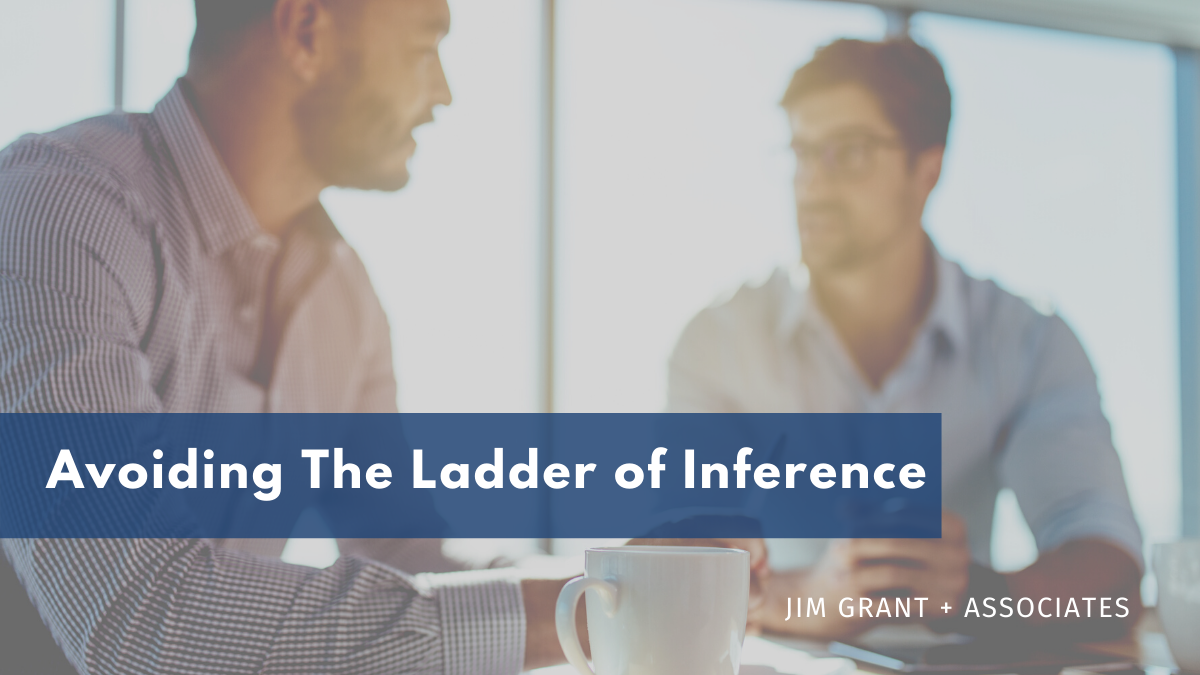Avoiding The Ladder Of Inference
For great dialogue,
the ladder of inference can be your enemy because not only is there no dialogue but, when discussion does occur, it is littered with preconceptions, beliefs, and conclusions.
Genuine dialogue calls for the suspension of judgement and avoiding the ladder of inference.
“Suspension means that we neither suppress what we think nor advocate it with unilateral conviction. Rather we display our thinking in a way that lets others see and understand it.”
William Isaacs Founder and President of Dialogo – senior lecturer at the Sloan School of Management
Doing this well will means stopping, stepping back, and trying to see things with new eyes, while becoming aware of your underlying assumptions and beliefs that might influence your reaction. At a more sophisticated level, you may even be able to identify your own quick or inappropriate judgements and the defences that lie behind them. Additionally, the ability to
‘suspend internally’ by acknowledging your own anxieties, defences, hard-wired feelings, judgements, and assumptions, requires great self-control and emotional maturity, and it frees you up to attend to what is going on with the
coachee.
This involves:
- Being less certain about your point of view – I have done this a hundred times; I know exactly what to do.
- Recognising that there are things you actually don’t know and your coachee
- Where useful, and without taking up too much airtime, talking about your own experiences and assumptions and sharing the context of your thinking, warts and all.
As we all know, people can and do reach different conclusions on apparently the same data, happy in their own rightness and certainty, each viewing their own conclusions as obvious, with no need to explain how they reached such a conclusion (
It’s obvious, isn’t it?).
So,
when a fact seems especially self-evident to you, then take care. If your manner suggests that it must be equally self-evident to the person you are coaching, you may cut off the chance to test it. A fact, no matter how obvious it seems, isn’t really substantiated until more than one person verifies it independently. The problem is that, when we disagree, we can hurl conclusions at each other from the tops of our respective ‘ladders’, making it very hard to resolve differences and to learn from one another.
However, there is something exhilarating about showing other people the
links of your reasoning. They may or may not agree with you, but at least they can see how you got there. And you will often surprise yourself when you see how you got there yourself, once you work though all the links and connections.


